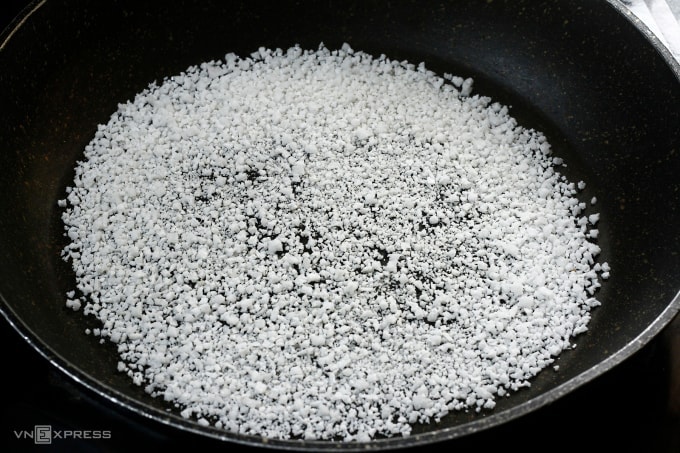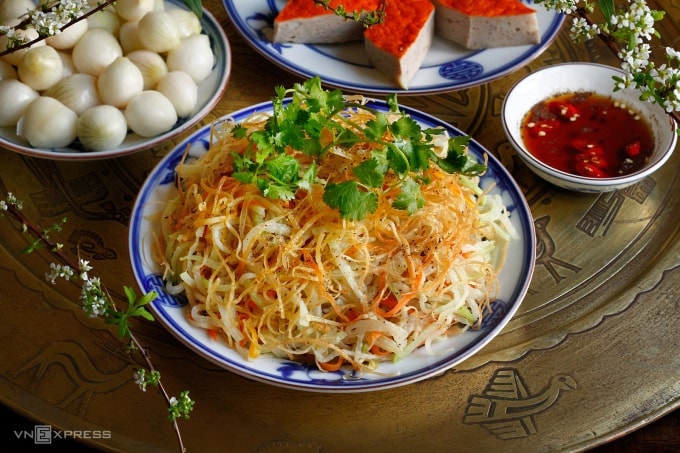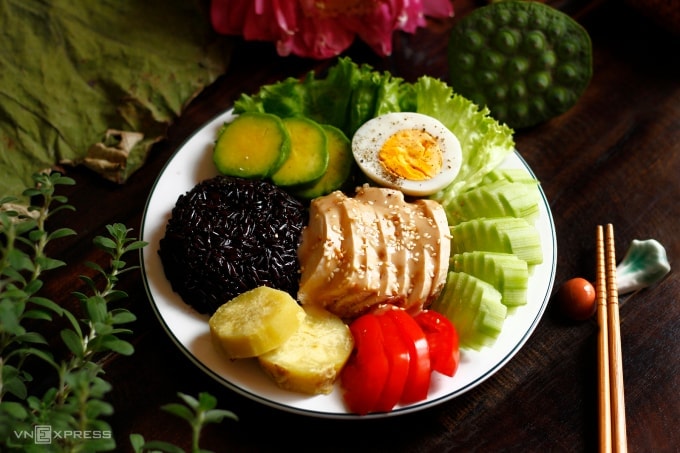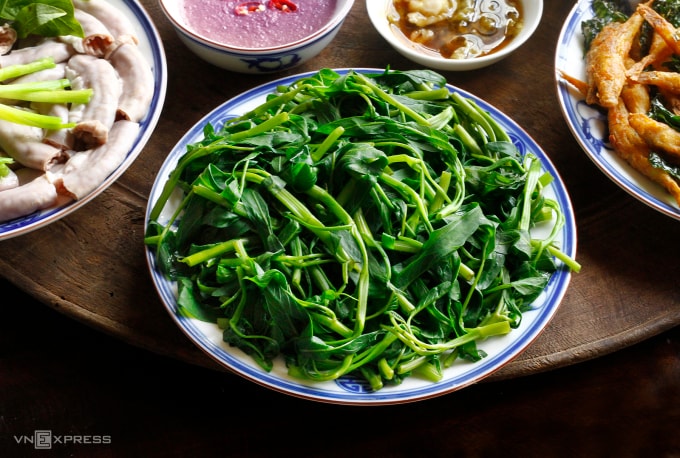Not just a seasoning, salt has many uses such as enhancing flavor, making food crispy, creating moisture, increasing toughness for dishes, and helping vegetables to boil greener.
Salt enhances flavor and aroma

Salt is a special spice that can affect both aroma and taste. Salt also helps release many aromatic compounds in the dish, helping to elevate the enjoyment to a new level. For example, when tasting chicken broth without salt, it will feel bland and tasteless, but when added, you will clearly feel the delicious taste of the chicken, the richness of the fat, the aroma of ginger and onions mixed in...
Coarse salt also contains many other micronutrients such as sulfate, carbonate, potassium, magnesium, calcium, iron, zinc... so when processed, in addition to the rich flavor, there will be sweet aftertaste, soft taste, mineral taste, iron taste to help the dish more complete.

Salt draws out water and makes food crispy.
When food is salted, osmosis occurs, moving water from a low concentration environment to a high concentration environment to reach balance. This is easily seen when making pickles, salads or stir-frying hard vegetables and fruits, which release a lot of water from the inside. And once the water is removed from the food, it becomes more crispy and delicious.
For example, in the dish of stir-fried kohlrabi and squid from Bat Trang, the dish is often marinated or blanched in boiling water with salt and then drained, making the dish crispier and tastier than the usual stir-fry method.
For salads and pickles, after shredding and cutting into pieces, add a little salt, shake well and leave for 10-15 minutes to release the water. Then, rinse several times or soak in warm water to remove all the salt, then rinse and squeeze dry to prepare the salad. Crispy roasted meat dishes are more perfect when the skin is dried by sprinkling a layer of salt on the surface of the skin. The salt will absorb the water to help the skin dry and when grilled at high heat, it will puff up and become crispy.
Salt helps preserve food
Salt helps break down enzymes and damage the DNA of bacteria, preventing their growth. This is an ancient folk method that has been preferred in preserving foods such as bacon, dried fish as well as pickled eggplant, pickled cabbage, and onions.
In addition, washing vegetables and food with diluted salt water (about 1 teaspoon of salt/1 liter of water) helps clean effectively based on the physical and chemical principles of turgor and osmosis.
Salt helps increase the juiciness of lean meat.

European and American chefs often use the brine technique when preparing chicken breast, lean pork, and fish. The diluted brine helps dissolve the protein chains into a thick colloidal solution, thereby absorbing and retaining water better, so the meat is moist and has a richer flavor when cooked.
The appropriate ratio of salting technique is 5%, for example, to soak a piece of chicken breast, you need 500 ml of water to soak it, so mix 25 grams of salt and 25 grams of sugar.
Salt enhances flavor and "fixes" bitter, sour dishes.
Salt also has the ability to release and support or reduce other flavors, for example, it helps reduce the feeling of bitterness by the auxiliary effect of bringing out other flavors in bitter dishes. When preparing eggplant, bitter melon, or processing grapefruit pulp to make sweet soup, adding a little salt will help reduce their bitterness. Salt also increases sweetness, reducing the bitterness in foods that are both bitter and sweet, such as chocolate, coffee ice cream, or caramelized sugar.
Although sugar can be used to balance the bitterness in sauces or soups, salt actually masks bitterness more effectively. For example, grapefruit juice is both bitter and sweet, adding a little salt will make a big difference.
Salt adds texture
Salt not only enhances flavor, but also affects the protein structure in foods. Salt helps stimulate gluten, a protein that makes dough chewy and elastic. Therefore, when making Japanese ramen noodles and Korean udon, people always add a little salt to enhance gluten to create the desired chewiness. Adding salt to thin doughs and doughs when making cakes and pastries also creates an attractive texture and softness.
Salt helps vegetables cook faster and stay greener.

Under normal conditions, the boiling temperature of water is 100 degrees. When salt is added to water (before boiling), the concentration of dissolved substances will be higher than pure water, thus changing the physical and chemical properties, including the boiling temperature. Depending on the amount of salt added, the boiling temperature can increase by a few degrees. Therefore, from ancient times until now, when boiling vegetables, housewives often add a little salt to the pot of water. At this time, salt increases the boiling temperature, helping the vegetables cook quickly and not lose vitamins. In addition, the Na+ and K+ ions in salt will reduce the activity of the acid ion H+ (available in water), so the vegetables will be greener.
Salt helps eggs become soft and golden yellow.
Eggs are high in protein, which absorbs salt more readily. Adding a little salt to scrambled eggs, omelets, or frittatas helps the proteins in the eggs coagulate more quickly at lower temperatures, reducing cooking time. This reduces the amount of water lost, helping the eggs retain their moist texture and attractive golden color.
Salt softens hard grains
Most fruits and nuts contain a hard, indigestible carbohydrate called pectin. When pectin is softened through natural ripening or heat, fruits and nuts become more palatable and easier to eat.
The secret of adding a small pinch of salt when soaking sticky rice, soaking cereals to cook sweet soup... will help weaken pectin molecules, shorten cooking time, and make the dish more delicious and flavorful.
Salt helps thicken soup.
When cooking soups or broths, professional chefs often add a little salt to help round out the flavor and create a natural consistency. The reason is that salt also has the effect of dissolving proteins and creating a more uniform, smoother mixture.
TH (according to VnExpress)